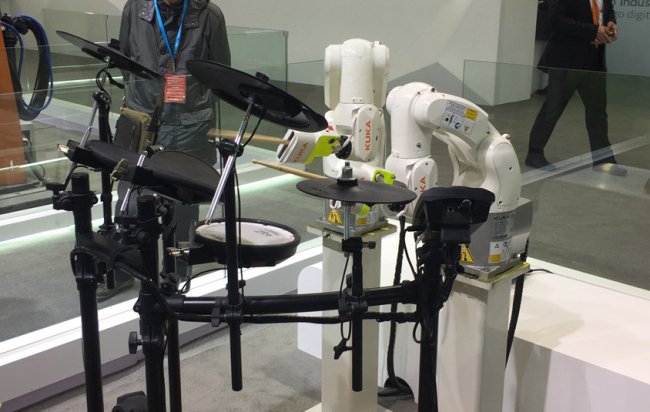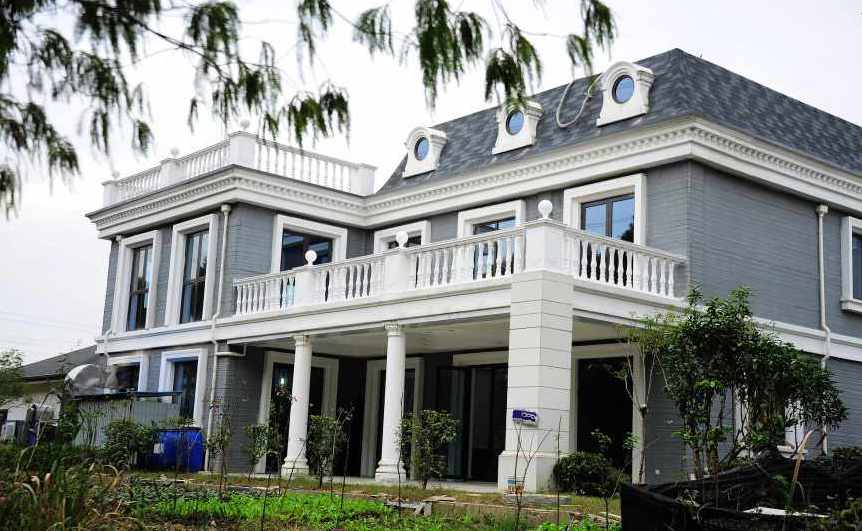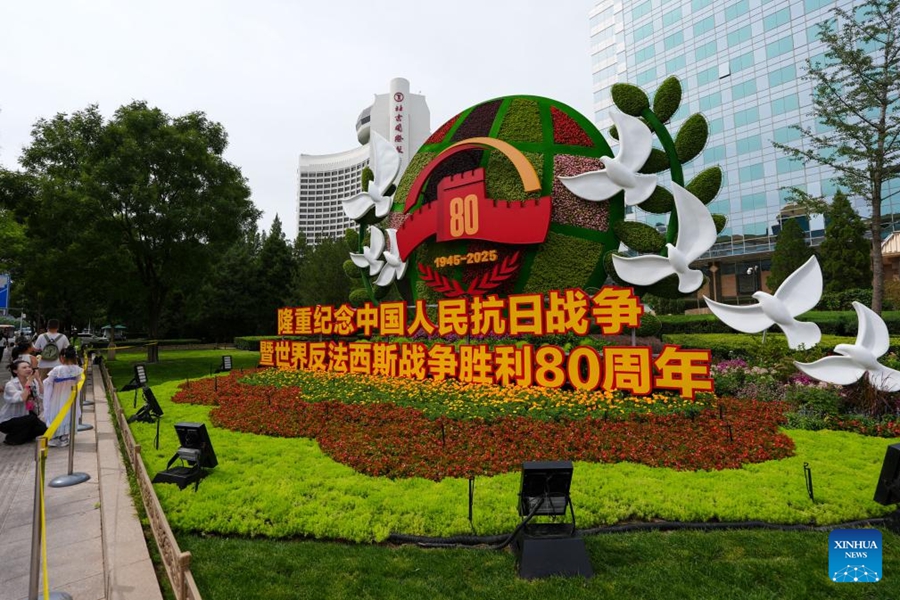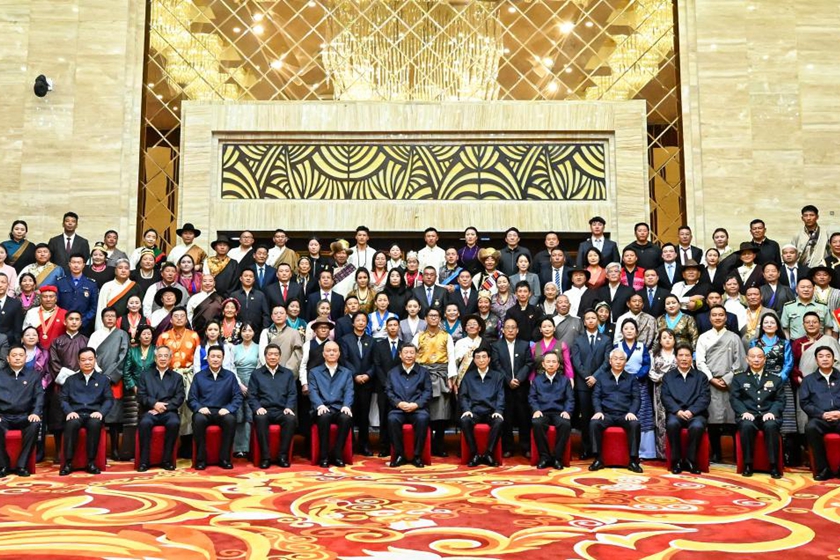A robotic-assisted surgery for kidney stone removal, performed by surgeons at two hospitals more than 4,700 kilometers apart, has become the only medical project to win the second prize on the list of 5G Application Ranking, released by the 2022 World 5G Convention on August 11.
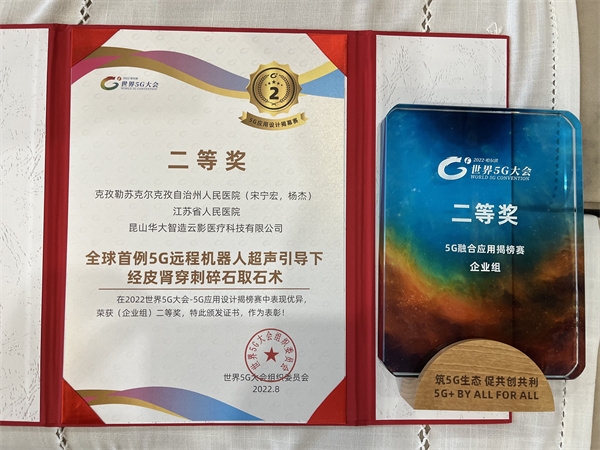
On October 9, 2021, Li Jie and Ye Xinhua at Jiangsu Province Hospital in Nanjing City guided Song Ninghong and Yang Jie at the People’s Hospital in Kizilsu Kirgiz Autonomous Prefecture in Northwest China’s Xinjiang Uygur Autonomous Region to perform the surgery for a 65-year-old patient who had hard-to-reach stones.
The procedure went smoothly thanks to the use of the 5G-powered robotic ultrasound system developed by MGI, an integration of robotics, teleoperation and ultrasound imaging technology.
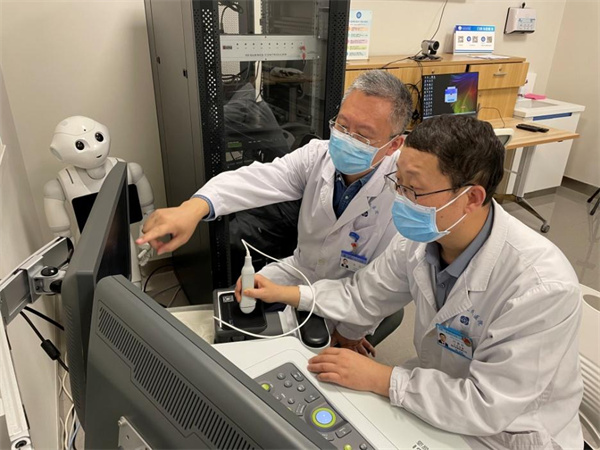
Li Jie and Ye Xinhua at Jiangsu Province Hospital guide the surgery in Nanjing.
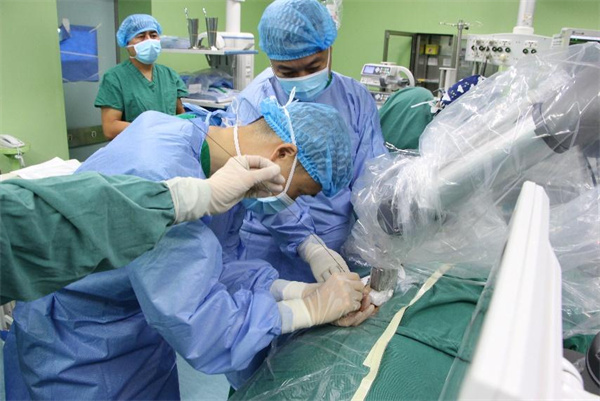
Song Ninghong and Yang Jie perform the surgery at the People’s Hospital in Kizilsu Kirgiz Autonomous Prefecture of Xinjiang.
Surgeons in Nanjing had a real-time imaging of the patient’s surgery process and then operated the medial device precisely to complete the procedure despite the long distance.
Yang said latencies less than 200 ms are industry standards for telesurgery but the 5G network ensured two-way latencies less than 135 ms between the two regions so surgeons didn’t feel any sense of delay.
Yang also said new medical devices powered by 5G have greatly improved training of local medical teams by Jiangsu, a latest achievement in the "pairing assistance" program to Xinjiang.
Five surgeons in the prefecture are now able to perform the challenging percutaneous nephrolithotomy (PNL) surgeries with the robotic ultrasound system.
As of August 1, the team led by Song at the People’s Hospital in Kizilsu Kirgiz had completed 22 such surgeries. There were no significant surgical complications incurred, the average bleed loss in the procedure was less than 20 ml, and the average operation time was only 40 minutes.
Contact us at english@jschina.com.cn

